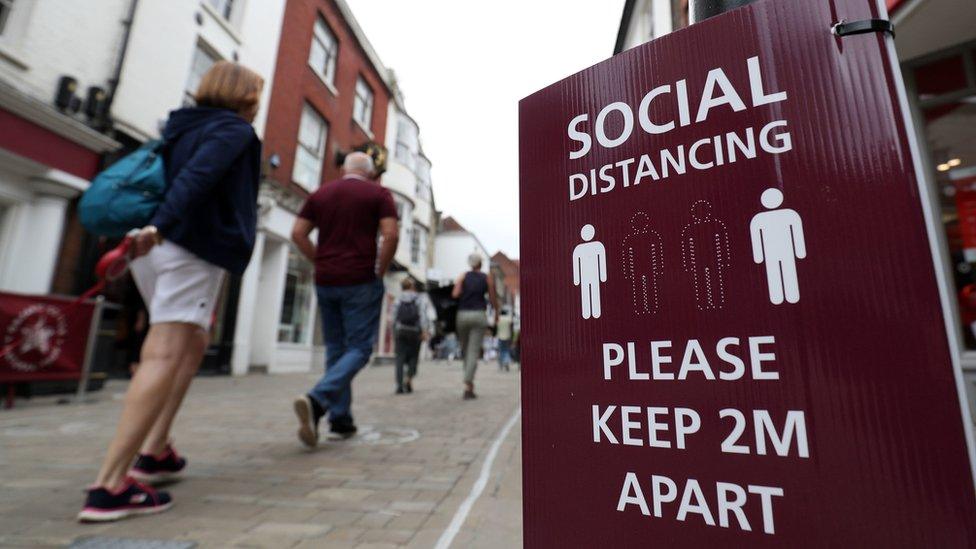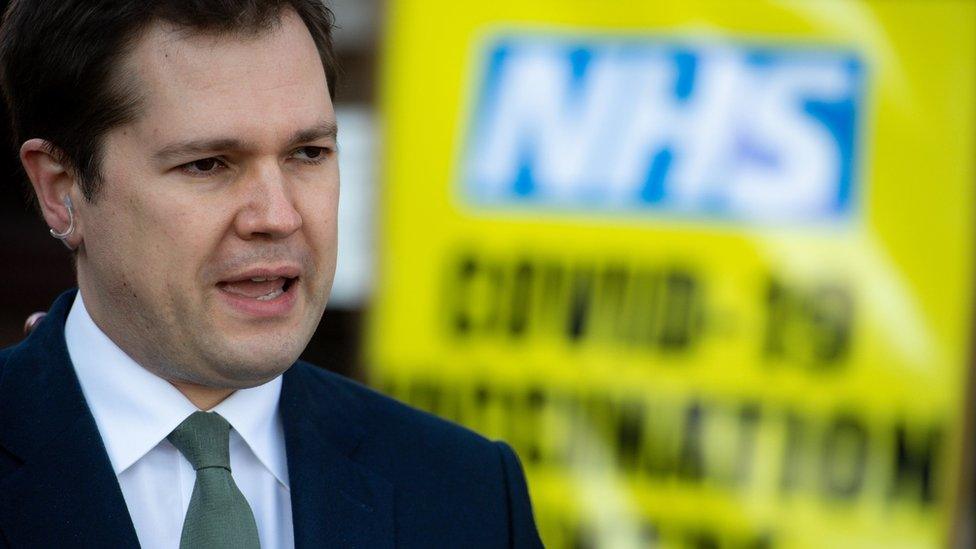Four English councils get emergency government funding
- Published
- comments

Four councils in England are being given emergency funding because they are unable to balance their books.
Communities Secretary Robert Jenrick said the pandemic was responsible in some cases, but in others "very poor management" was to blame.
Eastbourne, Bexley, Luton and Peterborough will get more flexibility to borrow money from the government.
It comes as some local authorities are warning of financial ruin amidst pressure from Covid-19.
Councils' core spending power is due to rise by up to £2.3bn next year, but some councils are still warning of shortfalls amid hits to income.
BBC analysis in 2020 revealed the scale of the problems facing them, with nearly 150 forecasting a combined budget shortfall of at least £3.2bn.
Some of the largest UK councils have been warning that they may have to declare themselves effectively bankrupt unless the government agrees to further support.
The government had previously provided almost £5bn in emergency support since the start of the pandemic to help councils deal with spiralling costs.
Support 'never provided lightly'
The four councils have been granted "capitalisation directions" allowing them to borrow money from the government to cover day-to-day costs.
Normally, councils can only borrow money for investments or capital projects such as building work.
Speaking on Wednesday, Mr Jenrick said there was "quite a broad range" of reasons why additional taxpayer support was required.
He said with some this was due to "poor management," and others due to "the exceptional events of the past year".
He added that the funding had been granted on an "exceptional basis" and the councils would be subject to "rigorous reviews" of their finances.
"Taxpayer support of this kind is never provided lightly, and in return for the increased flexibility afforded to councils next year, we expect sound financial management with residents shielded from unaffordable increases."
Mr Jenrick also announced a £50,000 fund for the Isle of Wight fund to review the challenges face by the council, residents and businesses on the island in terms of access to vital services, supplies and employment.

Robert Jenrick leads on local government in Westminster
Liberal Democrat deputy leader of Eastbourne council Stephen Holt said they had made £4m in savings this year, but had been hit hard by reduced tourism during the pandemic.
He told the BBC the sector - including theatres and conference venues - normally represented about 60% of the council's annual income.
He added they had originally asked the government for help in the form of a grant, but noted they had received a loan, which "will need to be repaid".
Labour says council budgets have been "stretched to breaking point".
Shadow secretary of state for communities, Steve Reed, warned news of the bailout was the tip of the iceberg and council finances had "finally burst".
He added: "Ministers broke their promise to give councils the funding they needed to get communities through the crisis.
"The government's refusal to fund services properly means a dozen councils are already in talks to avoid bankruptcy and sadly dozens more are close to that point."
How could a council balance its books?
Local authorities are required by law to have a balanced budget.
There are three ways those facing difficulty could do this:
Councils could stop providing or cut funding for discretionary services, such as art galleries and leisure centres. But local authorities would not be allowed to completely stop providing key services, such as bin collections or basic social care
Councils could look to use money they held in reserve - like a savings account - to top up their current spending budgets
The Westminster government could provide more financial assistance